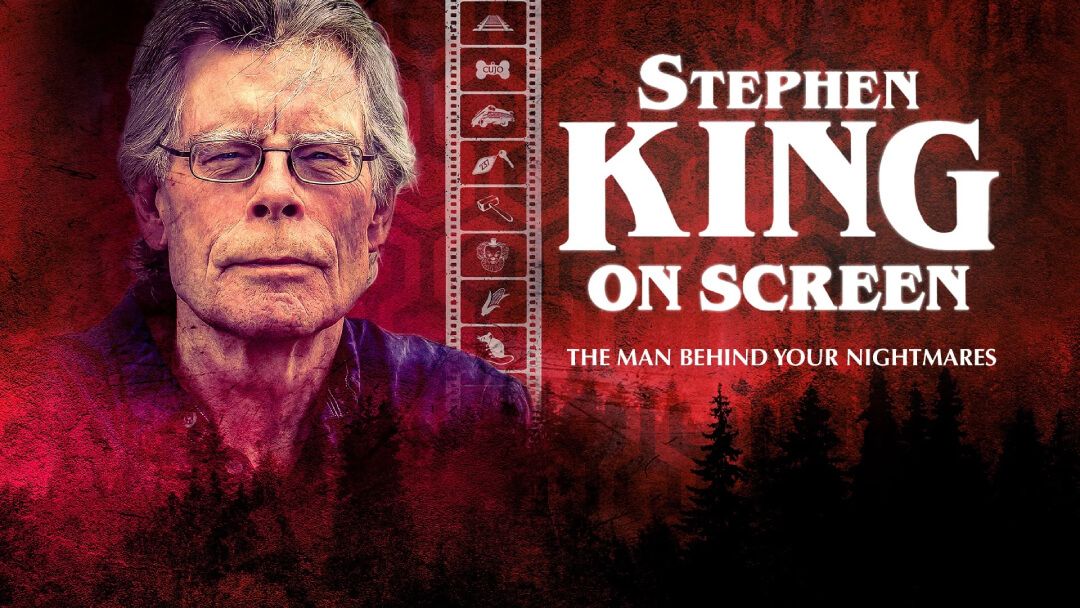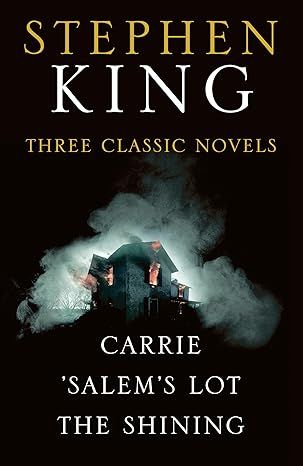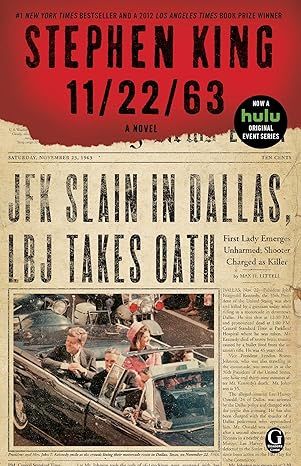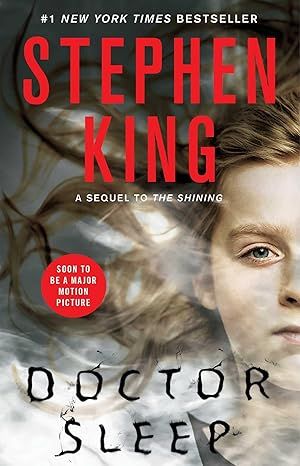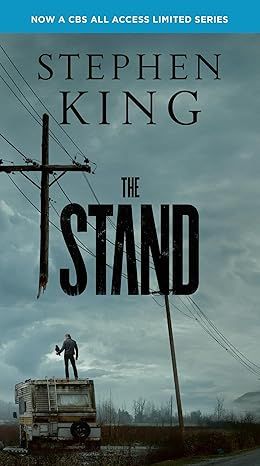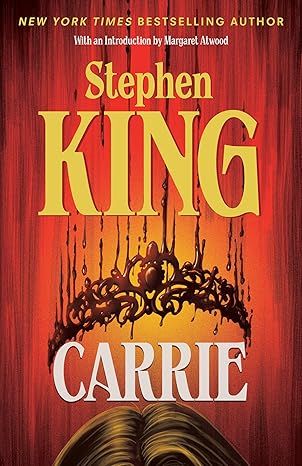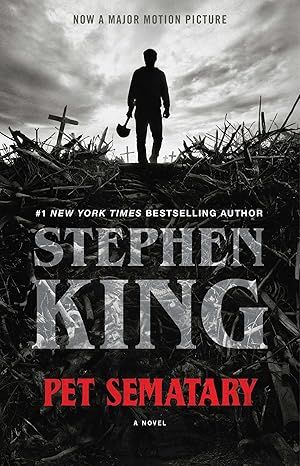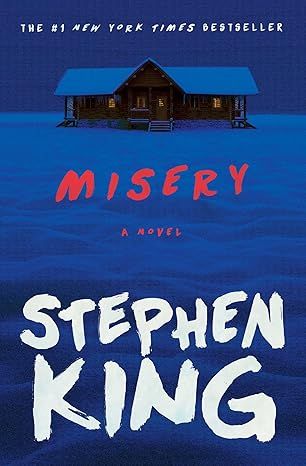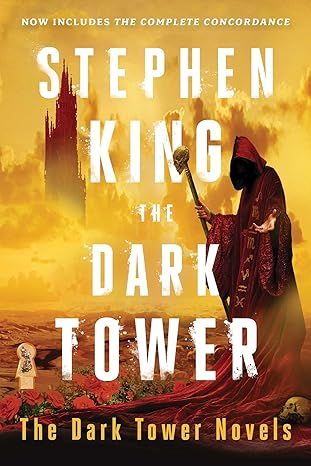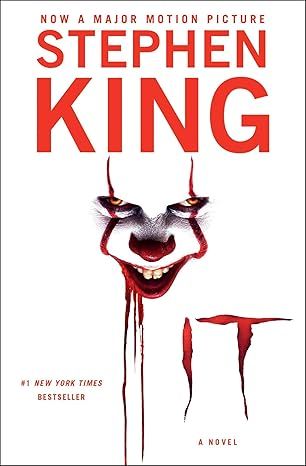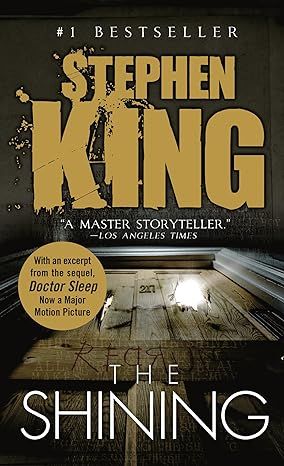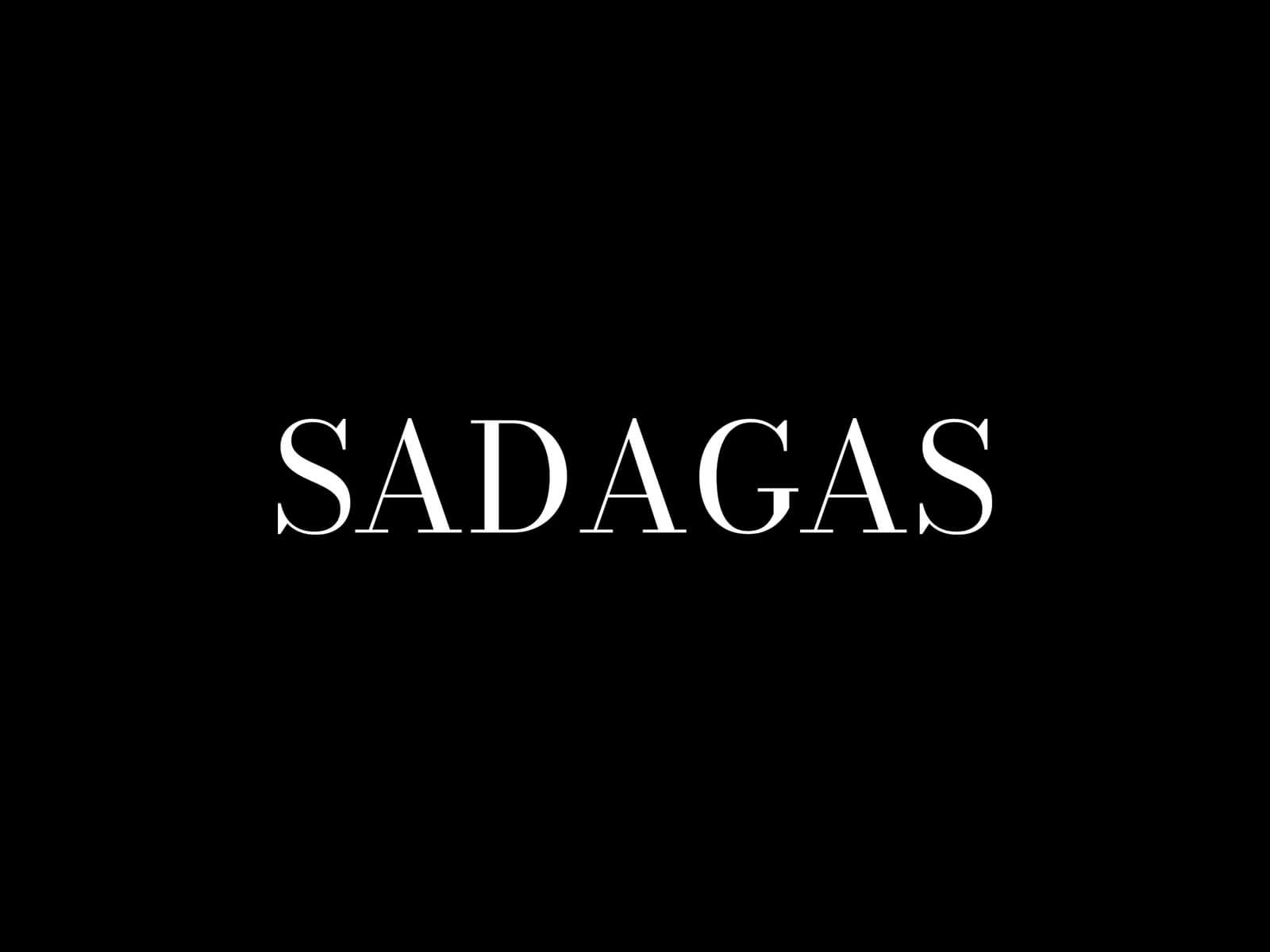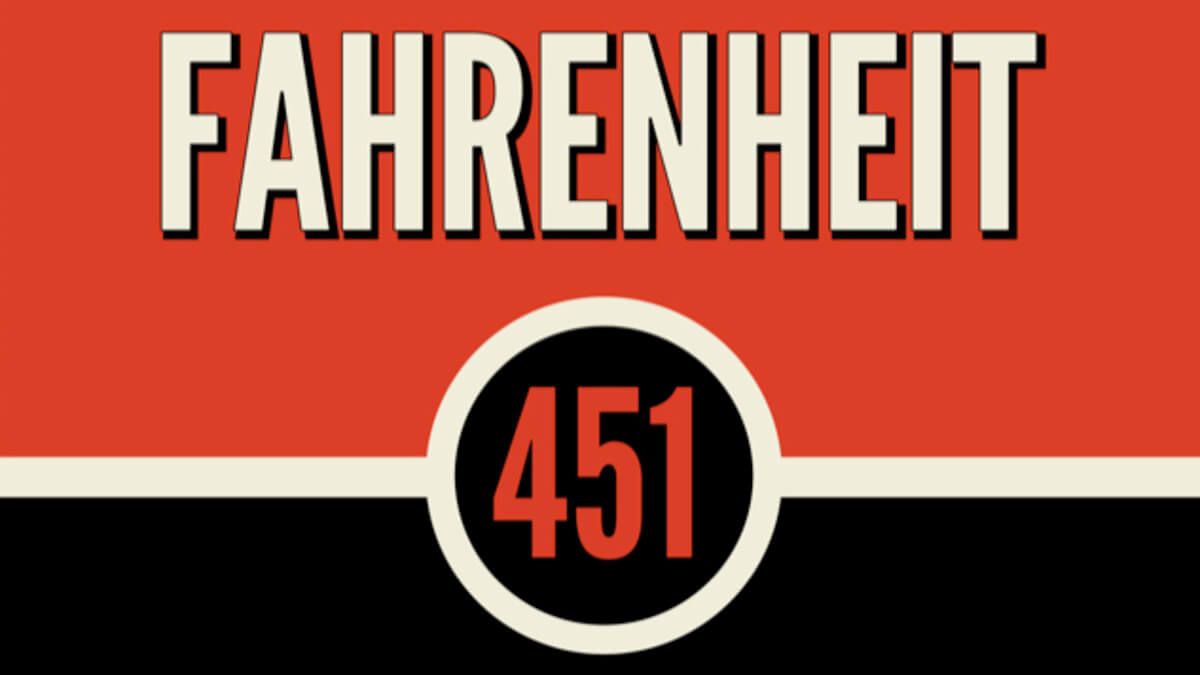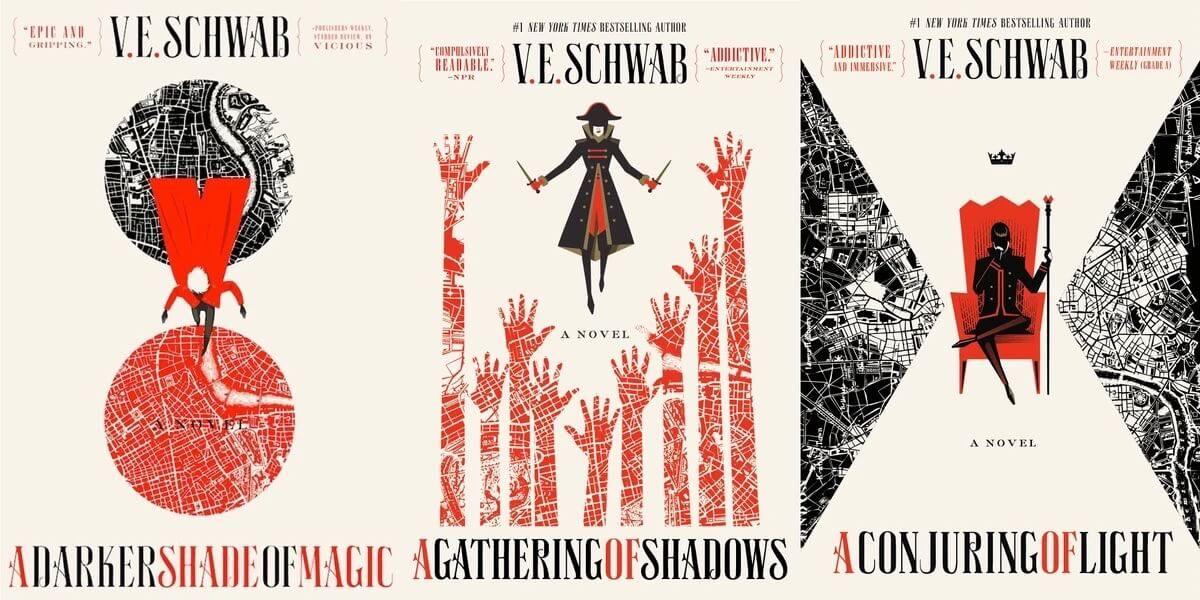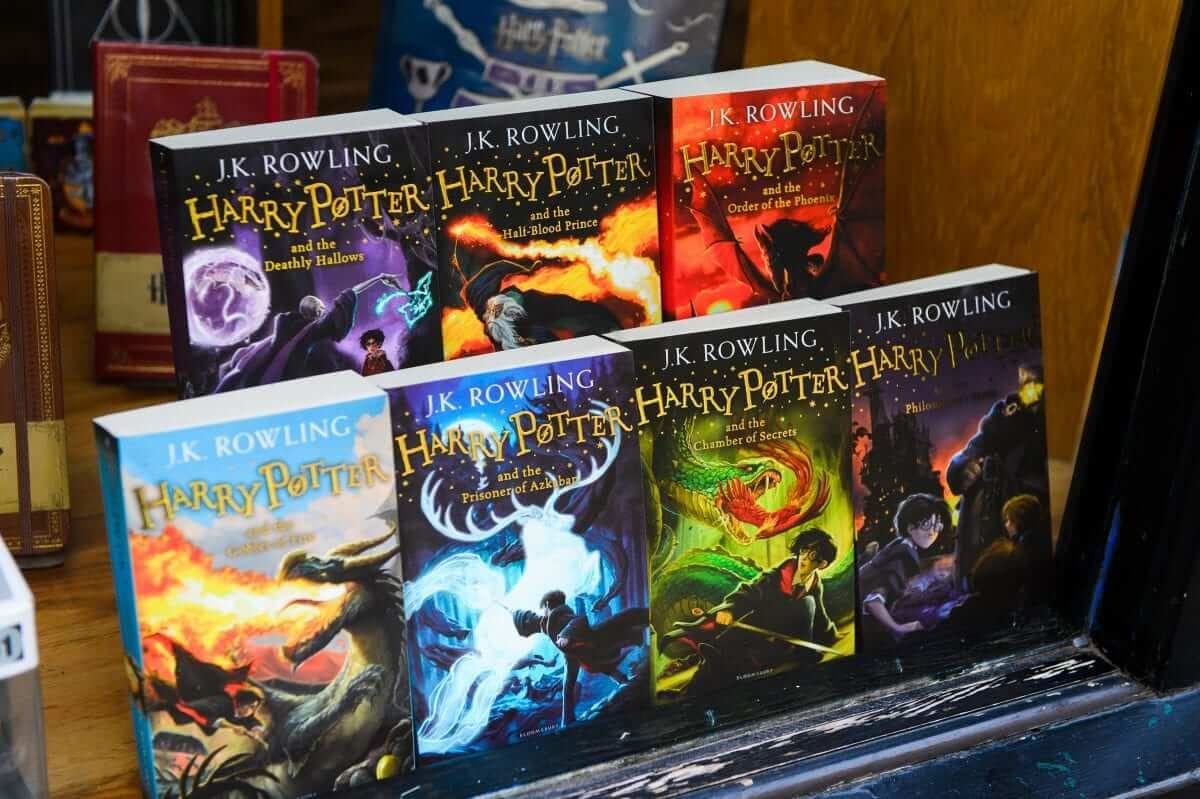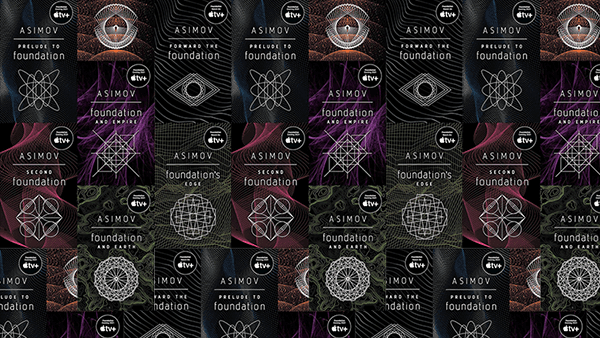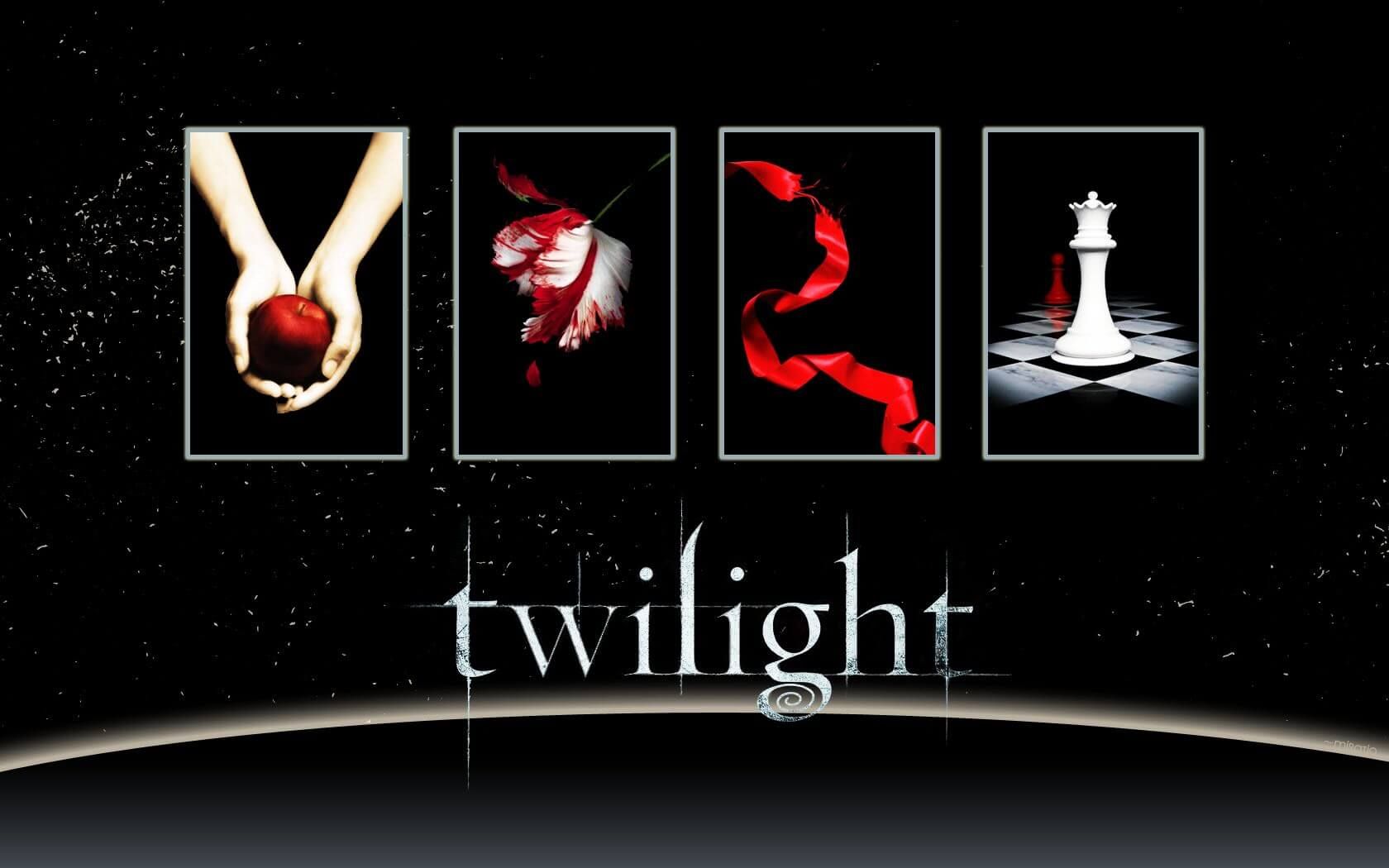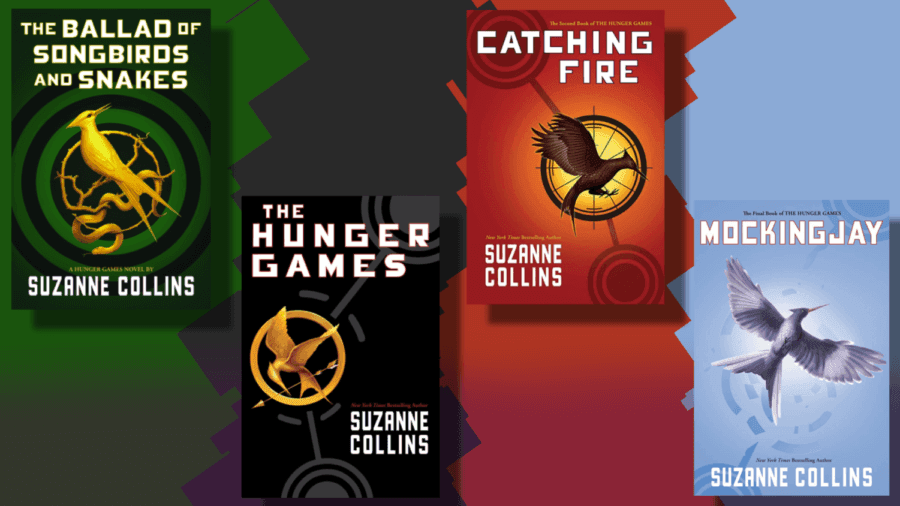Stephen King is the undisputed master of horror and suspense, but his works extend far beyond those genres. Whether you’re a longtime fan or just dipping your toes into the eerie worlds he creates, these are some of his best and most iconic books that showcase his incredible range as a storyteller.
His oeuvre, encompassing more than 60 novels and 200 short stories, has cemented his reputation as the undisputed "King" of horror fiction. But his mastery extends far beyond a single genre. Whether it’s horror, suspense, supernatural fiction, or even fantasy and thrillers, King’s storytelling prowess is a testament to his versatility and enduring influence.
What sets Stephen King apart isn’t just his ability to tap into our deepest fears but his gift for creating vivid characters and richly detailed worlds. His stories, dripping with psychological tension, lend themselves perfectly to the big screen, which explains why he’s also the most adapted living author in Hollywood. With films and series based on his works raking in huge box office numbers and critical acclaim, King has become not only a literary legend but also a cultural phenomenon.
From "Carrie" to King of Horror
Though King began writing at a young age, it was his breakthrough novel, Carrie (1974), written when he was just 26, that propelled him into the spotlight. This tale of a bullied girl with telekinetic powers would become his first work to be adapted into a major motion picture, kicking off a long list of iconic film adaptations that continue to draw audiences to this day.
While King is known primarily for his horror, he has ventured into many genres over the years. His Dark Tower series is a landmark work in fantasy, while The Running Man explores dystopian science fiction. He’s even dabbled in crime fiction with Mr. Mercedes. Yet, no matter where he roams, King’s mastery of suspense and the supernatural remains the heart of his work. It’s a comfort zone where he blends human emotions with the eerie, making his stories timeless.
With over 350 million copies of his books sold worldwide in 40 different languages, and a net worth estimated at $500 million, King’s influence on literature and pop culture is undeniable. But beyond his commercial success, it’s the impact his stories leave on readers’ minds that solidifies his legacy.
Stephen King's Top 10 Books: A Masterclass in Horror and Beyond
Selecting the best of Stephen King's work is no easy task. With a literary career spanning almost six decades, his catalog is brimming with groundbreaking stories that have left a lasting imprint on the world of fiction. From spine-tingling classics to modern masterpieces, these ten books represent the finest of King’s vast storytelling range, based on critical acclaim, public perception, and their enduring success.
10. Salem’s Lot (1975)
In Salem's Lot, Stephen King reimagines the traditional vampire story, setting it in the sleepy town of Jerusalem’s Lot, a rural community in Maine that becomes a breeding ground for creeping horror. The novel centers around Ben Mears, a writer who returns to his hometown only to discover that something sinister has taken root in the Marsten House, an old mansion with a dark past. When strange deaths and disappearances start to occur, Ben realizes that a powerful vampire, Kurt Barlow, has taken residence in the town, and is slowly turning its inhabitants into undead creatures.
King’s genius in Salem's Lot lies in his ability to juxtapose small-town life with the eerie and supernatural. The novel meticulously builds dread, exploring the idea of evil lurking beneath the surface of a seemingly ordinary town. The isolation of rural life amplifies the horror, as the town’s residents gradually succumb to vampirism, leaving only a handful of survivors to fight the growing darkness.
Salem’s Lot stands as one of King’s most atmospheric works, not only reviving the vampire genre but also establishing many of the themes that would become central to his later works—community, isolation, and the presence of evil in the everyday. It’s a chilling exploration of how evil can spread when left unchecked, and its lasting impact has cemented it as one of King’s finest novels and a cornerstone of modern horror literature.
9. 11/22/63 (2011)
11/22/63 is one of Stephen King’s most ambitious and genre-defying novels, blending historical fiction with elements of time travel and speculative fiction. The story follows Jake Epping, a high school English teacher from Maine, who is thrust into an extraordinary situation when his friend Al reveals a time portal in the back of his diner. This portal leads to September 9, 1958, allowing Jake to travel back in time. Al’s dying wish is for Jake to prevent the assassination of President John F. Kennedy on November 22, 1963, a mission Jake reluctantly accepts, believing it could alter the course of history for the better.
However, changing the past isn’t easy. Jake soon discovers that the past doesn’t want to be changed—it is resistant, and obstacles arise as he tries to navigate the complexities of life in the late 1950s and early 1960s. As Jake integrates himself into the world of the past, building relationships and living a second life, he faces increasingly dangerous challenges that threaten not only his mission but his very existence. Along the way, he encounters historical figures, including Lee Harvey Oswald, and must grapple with the moral implications of altering pivotal events in history.
King’s attention to historical detail is impeccable in 11/22/63, painting a vivid picture of mid-20th-century America. He captures both the hope and turbulence of the era, offering a deeply nostalgic yet sharply critical view of the time. But what truly makes 11/22/63 special is the emotional depth King brings to Jake’s journey. It’s not just a thriller about preventing an assassination—it’s also a poignant exploration of love, loss, and the sacrifices one must make when confronted with the possibility of changing fate.
The novel’s intricate plotting and deeply human characters elevate it beyond a simple “what if” scenario. King’s exploration of time travel is masterfully woven with the larger themes of regret, memory, and the consequences of our actions. It’s both a gripping historical adventure and a reflection on the fragility of the present and the complexities of altering the past.
8. Doctor Sleep (2013)
Doctor Sleep is the highly anticipated sequel to Stephen King’s classic The Shining (1977), revisiting the life of Danny Torrance, now an adult struggling with the traumatic legacy of his childhood. Decades after the horrors at the Overlook Hotel, Danny (now called Dan) is haunted by his psychic ability, "the shining," and by the emotional scars left by his father's descent into madness. As an adult, Dan has become an alcoholic like his father, using alcohol to suppress his psychic powers and numb his pain.
The novel begins with Dan hitting rock bottom, but eventually finding a sense of purpose when he joins Alcoholics Anonymous and takes a job at a hospice, where he uses his abilities to comfort dying patients, earning him the nickname "Doctor Sleep." Just as Dan begins to rebuild his life, he encounters a young girl named Abra Stone, whose "shining" is even more powerful than his own. Abra becomes the target of a mysterious and sinister group known as the True Knot—a nomadic cult of quasi-immortal beings who feed on the psychic energy of children with the shining in order to prolong their lives. Led by the charismatic and terrifying Rose the Hat, the True Knot sets its sights on Abra, sensing her immense power.
As Dan forms a bond with Abra, he is drawn into a deadly confrontation with the True Knot, forced to protect her from the group’s horrifying and parasitic hunger. At the same time, Dan must confront his own inner demons and face the trauma of his past, including returning to the ruins of the Overlook Hotel, where the shadows of his childhood still linger.
In Doctor Sleep, King deftly explores themes of addiction, recovery, and redemption, weaving them into a gripping supernatural thriller. The novel offers a deeper and more introspective look at Dan Torrance as a man trying to come to terms with his father’s legacy while forging his own path. King’s depiction of Dan’s struggle with alcoholism is raw and honest, adding emotional weight to the story, and creating a complex and flawed hero that readers can root for.
In Doctor Sleep, Stephen King demonstrates once again why he is the master of blending the supernatural with the deeply human, crafting a novel that is as much about facing your inner fears as it is about battling external monsters.
7. The Stand (1978)
The Stand is Stephen King’s magnum opus—a sprawling post-apocalyptic epic that delves into the ultimate battle between good and evil. Set in a world ravaged by a deadly virus known as the "Captain Trips" superflu, the novel explores the collapse of civilization and the struggle for survival in its aftermath. Released in 1978 and later expanded in 1990, The Stand remains one of King’s most ambitious works, blending elements of horror, fantasy, and social commentary.
The novel begins with the rapid and devastating spread of a weaponized strain of influenza that wipes out 99% of the world’s population in a matter of weeks. As society crumbles, the few survivors—those mysteriously immune to the virus—are scattered across the barren landscape of a ruined America. King meticulously builds a world where societal norms have vanished, and the survivors must navigate a lawless, chaotic new reality.
One of the defining elements of The Stand is its sheer scope and richness of characters. King takes the time to develop his ensemble cast, creating a sense of investment in their individual journeys. The survivors are not just archetypes—they are deeply flawed, complex people grappling with loss, guilt, hope, and redemption in a world that no longer makes sense. This depth of characterization gives the novel its emotional weight, making the reader care deeply about the fates of these individuals as they face unimaginable challenges.
The Stand is often seen as a parable of good versus evil, but it is also a meditation on humanity’s ability to rebuild, to find strength in community, and to resist the forces of darkness even when all seems lost. Its themes of survival, resilience, and the dangers of unchecked power resonate as powerfully today as they did when the book was first published.
With its intricate world-building, memorable characters, and profound moral questions, The Stand remains one of Stephen King’s most celebrated works, widely regarded as a cornerstone of modern post-apocalyptic fiction. Whether you’re drawn to its grand scale, its philosophical underpinnings, or its chilling vision of a world undone by disease and chaos, The Stand is a must-read for anyone looking to experience King at the height of his storytelling powers.
6. Carrie (1974)
Carrie is the novel that launched Stephen King's illustrious career, introducing readers to his distinctive brand of horror and psychological suspense. Published in 1974, Carrie tells the story of a shy, bullied teenage girl with telekinetic powers who exacts a devastating revenge on her tormentors. It’s a tale of isolation, repression, and the destructive potential of power, laced with elements of supernatural terror.
Through Carrie, King explores the devastating effects of bullying, abuse, and social alienation, themes that remain relevant today. Carrie White is both a victim and a monster, and her story serves as a powerful commentary on the consequences of cruelty and neglect. The novel also tackles themes of feminine power and repression, with Carrie’s telekinesis symbolizing both her repressed rage and her emerging independence.
Carrie remains one of Stephen King’s most iconic works, not only for its chilling horror elements but also for its deep emotional and psychological resonance. It captures the fear, pain, and alienation of adolescence in a way that few other novels have, while also delivering a terrifyingly unforgettable story of revenge.
The success of Carrie helped cement King’s reputation as the "Master of Horror" and led to its highly successful film adaptation in 1976, directed by Brian De Palma. The novel continues to be a cornerstone of King’s legacy, illustrating his talent for blending real-world issues with supernatural horror to create stories that are both deeply unsettling and profoundly human.
5. Pet Sematary (1983)
Pet Sematary is one of Stephen King’s darkest and most emotionally haunting novels, exploring the terrifying consequences of defying death and the price of grief. Published in 1983, the novel delves into themes of loss, the fear of mortality, and the lengths to which people will go to reverse the inevitable. King himself has described Pet Sematary as one of the scariest books he’s ever written, and its chilling atmosphere and disturbing subject matter have made it a cornerstone of his horror legacy.
At its core, Pet Sematary is a story about the dangers of meddling with forces beyond human understanding. The resurrection in the book is not a miracle—it’s a curse. The dead do not return as they were, but as twisted, corrupted versions of their former selves. King’s portrayal of Louis’s descent into madness, fueled by his inability to accept loss, adds a psychological dimension to the horror.
The atmosphere in Pet Sematary is one of pervasive dread. The setting, with its rural isolation, the ominous burial ground, and the constant specter of death, creates a sense of creeping unease. The novel builds slowly, with King expertly ratcheting up the tension until it culminates in a horrific and tragic climax.
Pet Sematary remains one of King’s most powerful novels because it strikes at the heart of the human condition. It’s a story that forces readers to confront their own fears about death and the lengths they might go to if faced with the same agonizing choices as Louis Creed. Its emotional depth and relentless horror have made it a standout in King’s extensive body of work, earning it a reputation as one of the most disturbing and unforgettable tales of all time.
The novel was adapted into two film versions, in 1989 and 2019, each bringing King’s terrifying vision to the screen. However, the original book’s chilling exploration of grief, death, and the consequences of tampering with fate remains unparalleled. Pet Sematary is not just a horror novel—it is a poignant, terrifying meditation on loss and the cost of refusing to let go.
4. Misery (1987)
Misery is one of Stephen King’s most intense and claustrophobic psychological thrillers, exploring the terrifying dynamics of obsession, control, and survival. The novel is a harrowing tale of an author held captive by his "Number One Fan," offering a chilling meditation on the relationship between creator and audience, as well as the darker side of fandom.
Misery is a masterclass in suspense, with the bulk of the novel taking place in the confined space of Annie’s remote house, amplifying the tension as Paul’s situation becomes increasingly dire. King delves deep into both Paul’s psychological state and Annie�’s deranged mind, creating a terrifying cat-and-mouse game between the two.
One of the novel’s central themes is the nature of obsession and the destructive potential of fanatical devotion. Annie’s obsession with Paul’s work transforms her from a seemingly harmless fan into a sadistic captor, while Paul’s struggles to regain control of his own narrative—and his life—serve as a powerful commentary on the creative process and the pressures artists face from their audience.
With its gripping narrative and unrelenting tension, Misery stands as one of Stephen King’s most critically acclaimed works, praised for its tightly crafted plot and complex characters. The novel’s psychological depth, combined with its pulse-pounding suspense, make it a chilling exploration of captivity, madness, and the lengths to which one will go to survive.
3. The Dark Tower Series (1982-2012)
The Dark Tower Series is Stephen King’s ambitious and genre-defying epic, a masterwork that blends elements of fantasy, horror, western, and science fiction into a rich tapestry of storytelling. Spanning eight novels written over three decades, from The Gunslinger (1982) to The Wind Through the Keyhole (2012), the series follows the journey of Roland Deschain, the last Gunslinger, as he seeks the enigmatic Dark Tower, a mysterious structure that stands at the nexus of all universes.
The narrative begins in The Gunslinger, where readers are introduced to Roland, a stoic and relentless figure in a desolate, post-apocalyptic landscape reminiscent of the Old West. As he pursues the elusive Man in Black, Roland embarks on a quest that will take him through various worlds and dimensions, encountering a host of memorable characters along the way, including the young boy Jake, who becomes a crucial companion in his journey.
Key novels in the series include:
- The Gunslinger (1982) - The introduction of Roland Deschain and his pursuit of the Man in Black.
- The Drawing of the Three (1987) - Roland draws three companions from different times and places: Eddie Dean, a heroin addict, and Susannah Dean, a woman with a tragic past. Their stories intertwine with Roland’s, as they face their own demons and battles.
- The Waste Lands (1991) - Roland and his companions venture through the decaying remnants of their world, facing various threats and challenges as they draw closer to their ultimate goal.
- Wizard and Glass (1997) - A flashback to Roland's past reveals the tragic love story between him and Susan Delgado, shedding light on his motivations and the losses that haunt him.
- Wolves of the Calla (2003) - Roland and his ka-tet (a term meaning “group bound by fate”) confront a dangerous group known as the Wolves, who threaten a small town.
- Song of Susannah (2004) - The narrative intensifies as the characters face new challenges and the nature of their quest becomes clearer, intertwining with the concept of creation and storytelling itself.
- The Dark Tower (2004) - The climactic conclusion of the series, where Roland’s journey reaches its zenith, filled with revelations and dramatic confrontations.
- The Wind Through the Keyhole (2012) - A bridge novel that takes place between the fourth and fifth books, offering additional layers to the story and further exploring the themes of storytelling and courage.
The series is notable not only for its thrilling plot and rich themes but also for its exploration of the power of storytelling. King frequently reflects on the act of creation itself, questioning the nature of fate and free will, as well as the responsibility of the creator. The Dark Tower becomes a symbol of ultimate truth and understanding, serving as both a goal and a destination in the journey of life.
2. It (1986)
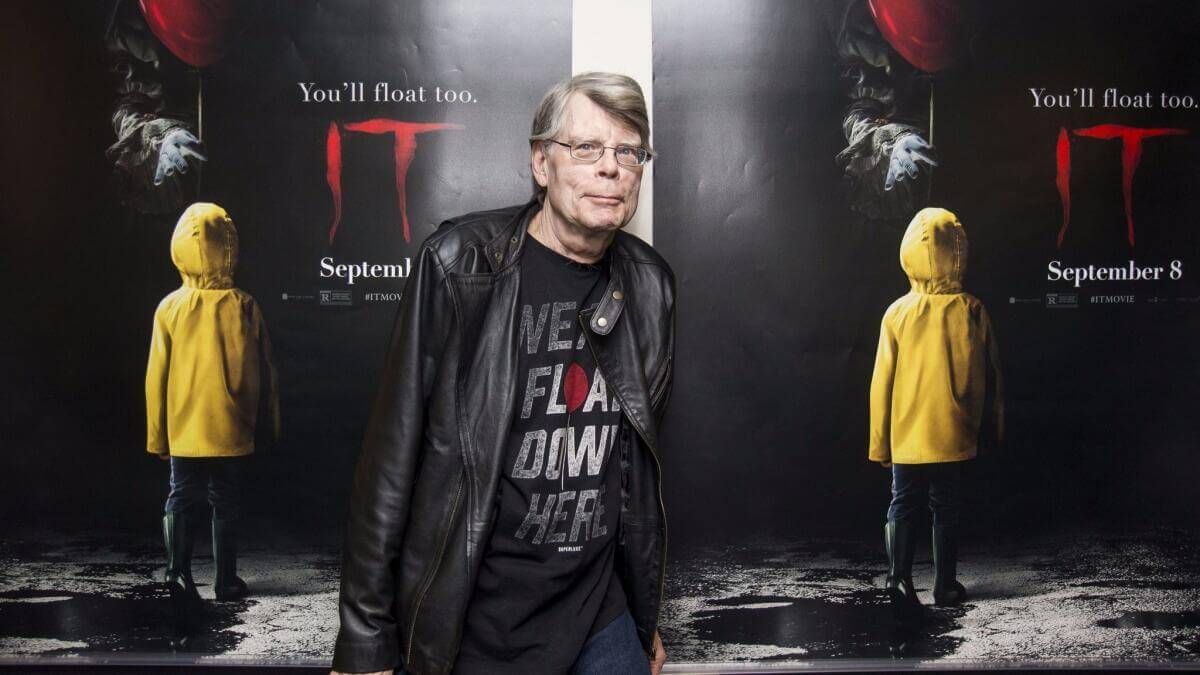
It is one of Stephen King’s most iconic and terrifying novels, a sprawling tale that delves into the fears and traumas of childhood while exploring the enduring power of friendship and the battle against evil. Published in 1986, It is set in the fictional town of Derry, Maine, and weaves together two timelines, one in the 1950s and the other in the 1980s, as it follows a group of children who confront a malevolent force that preys on their deepest fears.
The story begins with a series of mysterious disappearances and gruesome events linked to an ancient evil that awakens every 27 years to feast on the town’s children. The malevolent entity, known as Pennywise the Dancing Clown, takes the form of a clown to lure children, but it can also manifest as their worst fears. The novel introduces a group of seven misfit children who call themselves the "Losers' Club." Each member of the club has been marginalized or bullied in some way, forming a strong bond as they navigate the challenges of adolescence.
King expertly crafts the narrative by alternating between the children's experiences in the 1950s, when they first confront It, and their adult lives in the 1980s, when they return to Derry to face the entity once more. This dual timeline adds depth to the story, highlighting how childhood experiences shape their adult lives and the lasting impact of trauma.
It is notable for its rich character development and emotional depth. Each member of the Losers' Club has their own unique story and growth arc, making them relatable and memorable. King invests time in exploring their backgrounds, fears, and friendships, creating a sense of camaraderie that resonates with readers.
It has become a cultural phenomenon, spawning a successful miniseries in 1990 and a two-part film adaptation released in 2017 and 2019. Its exploration of fear, friendship, and the power of memory continues to resonate with audiences, solidifying its place as one of Stephen King’s seminal works.
1. The Shining (1977)
The Shining is one of Stephen King’s most celebrated and chilling novels, a haunting exploration of isolation, madness, and the supernatural. First published in 1977, it tells the story of Jack Torrance, a struggling writer and recovering alcoholic who takes a job as the winter caretaker of the Overlook Hotel, an isolated mountain resort in Colorado. The novel is a masterclass in psychological horror, delving deep into the human psyche and the effects of isolation on the mind.
As Jack, along with his wife Wendy and their young son Danny, settles into the hotel, the family quickly discovers that the Overlook has a sinister past. The hotel is not merely a building; it is imbued with malevolent forces and haunted by the spirits of those who have suffered and died within its walls. Danny possesses a psychic ability known as "the shining," which allows him to see the hotel’s dark history and its terrifying inhabitants. This gift also opens a connection between Danny and the hotel’s cook, Dick Hallorann, who also has the shining and recognizes Danny’s potential.
As winter sets in and the hotel becomes snowbound, the isolation takes a toll on Jack’s mental state. Haunted by his past failures, Jack becomes increasingly unstable, falling under the influence of the Overlook’s malevolent presence. His descent into madness is fueled by the hotel’s ghosts, which manipulate his fears and desires, ultimately driving him to violence against his family.
Danny serves as both a child and a symbol of innocence threatened by darkness. His psychic abilities make him acutely aware of the dangers surrounding him, yet his youth also renders him vulnerable. Danny’s struggle to navigate his psychic gift while dealing with the chaos of his father’s unraveling sanity creates a poignant contrast between childhood innocence and the encroaching horrors of adulthood.
King’s exploration of themes such as addiction, domestic violence, and the cyclical nature of abuse is central to the narrative. Jack's struggle with alcoholism serves as a metaphor for the demons that haunt him, exacerbated by the hotel’s sinister influence. The novel becomes a chilling commentary on the fragility of the human mind and the ease with which one can succumb to darkness.
The Shining is notable not only for its terrifying plot and rich character development but also for its psychological depth. King’s ability to intertwine supernatural horror with profound human experiences makes the novel resonate on multiple levels, elevating it beyond mere ghost story tropes.
Stephen King Books In Order
Novels
- Carrie (1974)
- 'Salem's Lot (1975)
- The Shining (1977)
- Rage (1977) - published under the pseudonym Richard Bachman
- The Stand (1978)
- The Long Walk (1979) - published under the pseudonym Richard Bachman
- The Dead Zone (1979)
- Firestarter (1980)
- Roadwork (1981) - published under the pseudonym Richard Bachman
- Cujo (1981)
- The Running Man (1982) - published under the pseudonym Richard Bachman
- The Dark Tower: The Gunslinger (1982)
- Christine (1983)
- Pet Sematary (1983)
- Cycle of the Werewolf (1983)
- The Talisman (1984) - co-written with Peter Straub
- Thinner (1984) - published under the pseudonym Richard Bachman
- Skeleton Crew (1985) - collection
- It (1986)
- The Eyes of the Dragon (1987)
- Misery (1987)
- The Tommyknockers (1987)
- The Dark Half (1989)
- Needful Things (1991)
- Gerald's Game (1992)
- Dolores Claiborne (1992)
- The Waste Lands (1991) - The Dark Tower III
- Insomnia (1994)
- Rose Madder (1995)
- The Green Mile (1996)
- Desperation (1996)
- The Regulators (1996) - published under the pseudonym Richard Bachman
- The Dark Tower: Wizard and Glass (1997) - The Dark Tower IV
- Bag of Bones (1998)
- The Girl Who Loved Tom Gordon (1999)
- Dreamcatcher (2001)
- Black House (2001) - co-written with Peter Straub
- From a Buick 8 (2002)
- The Dark Tower: Wolves of the Calla (2003) - The Dark Tower V
- The Dark Tower: Song of Susannah (2004) - The Dark Tower VI
- The Dark Tower (2004) - The Dark Tower VII
- Cell (2006)
- Lisey's Story (2006)
- Duma Key (2008)
- Just After Sunset (2008) - collection
- Under the Dome (2009)
- Full Dark, No Stars (2010) - collection
- 11/22/63 (2011)
- The Dark Tower: The Wind Through the Keyhole (2012) - The Dark Tower VIII
- Joyland (2013)
- Doctor Sleep (2013)
- Mr. Mercedes (2014)
- Finders Keepers (2015)
- End of Watch (2016)
- Sleeping Beauties (2017) - co-written with Owen King
- The Outsider (2018)
- The Institute (2019)
- If It Bleeds (2020) - collection
- Later (2021)
- Billy Summers (2021)
- Gwendy's Button Box (2017) - co-written with Richard Chizmar
- Gwendy’s Final Task (2022) - co-written with Richard Chizmar
- Fairy Tale (2022)
Collections and Nonfiction
- Night Shift (1978)
- The Mist (1980) - novella in the collection Dark Forces
- Different Seasons (1982) - collection of four novellas
- Four Past Midnight (1990) - collection
- Everything's Eventual (2002) - collection
- The Best American Short Stories 2007 (2007) - edited by Stephen King and Heidi Pitlor
- On Writing: A Memoir of the Craft (2000) - nonfiction
Notable Short Stories
- The Bird and the Bee (1978) - in Night Shift
- Apt Pupil (1982) - in Different Seasons
- The Body (1982) - in Different Seasons
- The Shawshank Redemption (1982) - in Different Seasons
- The Raft (1982) - in Skeleton Crew
- The Moving Finger (1983) - in Skeleton Crew
